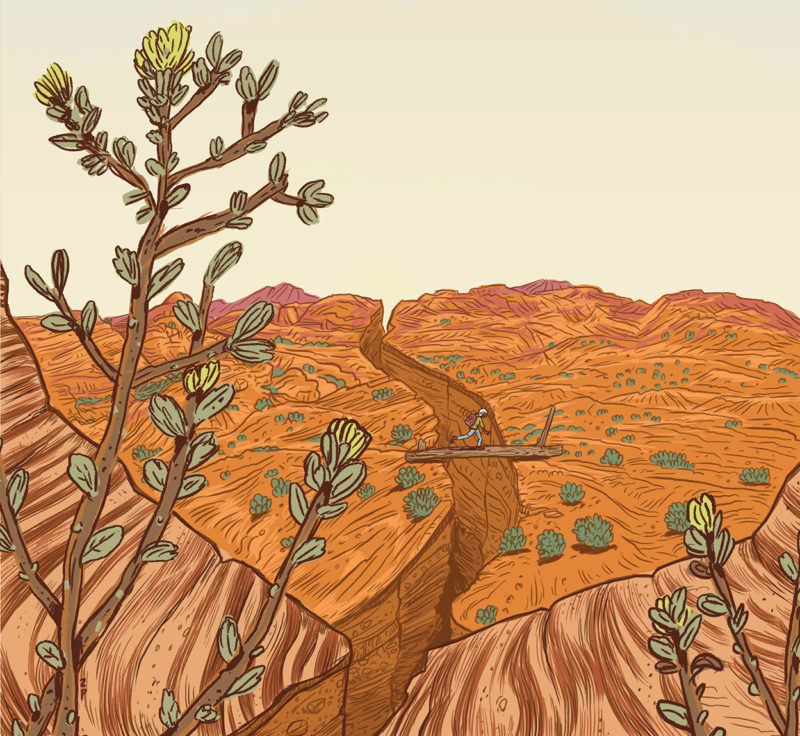Geography Lessons: Interviews from the 2019 Believer Festival in Las Vegas
Mari Brown and Ross Simonini
At this year’s Believer Festival, we cornered artists and activists at slot machines and on smoke breaks, asking them to riff on the meaning of the borders they’ve encountered in their lives and work. Weeks before, we’d made a firm decision to ask people, “What is the first geographical border you remember?” rather than the more expansive “What is the earliest border you remember?” We felt this was a way to keep the responses on a physical map at a moment in history when the public outcry about cruelty at the US border has exploded. But interviews don’t often go as expected. If we were to make a map using the borders from our conversations, you’d be able to take an intriguing road trip through a landscape of physical cities and metaphysical concepts. You might start out at “facial expressions on chairlifts,” wind through “Pennsylvania” and “silence,” stay for some time in “Tijuana” before passing through “marriage” and “precolonial Nigeria,” and come to rest, finally, somewhere between “Canada” and “the energetic aura, expressed as a kind of linguistic membrane, between me and my sister.” If that kind of travel appeals to you, try asking these questions of people in your own lives. You may arrive in new zip codes—some chorographic, some psychic.
—Mari Brown and Ross Simonini
NATALIE DIAZ
THE BELIEVER: What is the earliest border you encountered in your life?
NATALIE DIAZ: There were two embedded borders, one on top of the other. One was that I was living on a reservation, which had a very clear border, and on that reservation I knew I was also mixed: my father is Spanish and my mother is Native. On the reservation, which was my home, I should have been most comfortable, but I was different. But then as soon as I stepped off the reservation, I became a person from the reservation, so I didn’t have a full place in either place.
BLVR: What happened off the reservation?
ND: I became a sort of a commodity, in the sense that I was not like the others. I was very good at basketball, so I was often recruited by rich teams in Arizona to come play. They would pay my way to come play on their team so their teams could win, but these were places where I would never have been able to afford to go. I feel like I learned to play a game. Even now, when I go home, I speak very differently. If I’m off the reservation and I see another indigenous person, we recognize each other, and we look to each other for some kind of,...
You have reached your article limit
Sign up for a digital subscription and continue reading all new issues, plus our entire archives, for just $1.50/month.
Already a subscriber? Sign in





